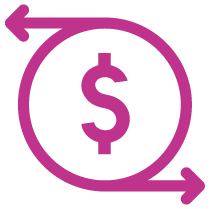At a breakfast meeting in Toronto a few years ago with the late George Jonas – an author of keen insight and perspicacity – I asked him what it was like to live under totalitarian rule, as he had done under Communism in his native Hungary before escaping to Canada in 1956. I will never forget what he said:
“I felt like I was fleeing a disease. But … it followed me!”
I almost wept for my country to hear such words. I have always loved Canada. For most of my life it has been a relatively trouble-free nation of plain-spoken, sensible people who seem politically and morally a little sheepish, not easily roused, not terribly impressed by the successes of their fellows, more prone to obey than to revolt, but who long before, and certainly since Confederation, have enjoyed a remarkable tradition of freedom.
This freedom – of speech, action, and thought – limited only by traditional bounds of criminal or civil law and custom, was at its high point during the colonial period, when settlers hardly ever saw an agent of government, and was lauded most poignantly in 1896 by Canada’s 7th Prime Minister, Sir Wilfrid Laurier, in words that rang throughout the land – and throughout the unfree world – like a proud and resounding gong: “Canada is free, and freedom is its nationality!”
And that is why I almost wept. For we simply cannot speak those words today, because Canada is no longer a truly free country. And I shall say why, in a moment.
Meanwhile I remember, when reading Life magazine in the mid-60’s, staring in disbelief at a large center-fold photo of a million Chinese students in Beijing’s Tiananmen square, each dressed in a severe copy-cat black uniform and hat, all waving Chairman Mao’s Little Red Book over their heads in an apparently genuine delirium of admiration for his orientalized version of Marxism.
I felt a deep pity for those robotic students, because it was clear they were brainwashed and quite frightened to raise an original idea, or to discuss individual freedom. And there was I, sitting in Canada in such full-enjoyment of my manifest liberties that I silently gave thanks for my country.
However, Canada’s proud inheritance of liberty began to diminish around mid-twentieth century, and anyone wishing to learn exactly how this happened, is encouraged (pardon the flagrant self-promotion) to read The Trouble With Canada … Still! (2010), which you can order straight from the “Writing”/”Books” section of this website. Even reading just the first chapter will explain the mournful story.
Canada was not alone in setting out to become what observers typically describe as a welfare state, a social-welfare state, or un état dirigiste (as the French call it). Indeed, it took only a few decades for almost all Western nations to transition, each at its own pace, into the kind of regime I described in my last post as libertarian-socialist. For that is what Canada is now.
Former Prime Minister Pierre Trudeau, the father of Canada’s current Prime Minister, was the poster-boy for this condition. He fought for the constitutional right to a maximum of personal, bodily, and sexual freedom for all, in the context of a maximum of public goodies for all – which made a large busy-body State necessary. When Trudeau came to power Canada had roughly 20 Billion dollars of federal debt after 100 years of Confederation that included two expensive World Wars. But by the time he left power only 14 years later, Canada had about 200 Billion in federal debt, and the standard rate of interest applied to that sum in the almost forty years since then brings us to about 650 Billion – which is what we carry today.
But now to the main point. This week, three events – and I render this remark with great caution – have led me to state that Canada, under Prime Minister Justin Trudeau and his liberal party, has just crossed the red line between soft-socialism and soft totalitarianism.
Hard to believe, and hard to say such a thing about Canada. But it seems true. When we think of hard totalitarianism, we think of machine guns and jackboots. But I am certain the tradition of British liberty that is our long and glorious inheritance will make hard totalitarianism forever (strike “forever”) impossible in a country like Canada. It is extremely unlikely Canadians will ever see jackboots, pervasive government spying, the “psychiatric” confinement of political enemies by government, dissidents sent to gulag camps in the north, and the like.
But we must be wary, for the softer sort of totalitarianism is here now. It showed up this week. And as in most places, with the exception of outright revolution, it begins with top-down control of a thousand little things the people hardly notice. The first stage is the State’s effort to persuade via the publication of official positions on things like abortion, homosexuality, diversity, inclusion, etc. But it soon progresses to official edicts and warnings intended to stifle opposing views; to direct control of citizen speech via Political Correctness pressure; to the rise of Trigger Warnings, shaming, coerced use of language such as gender pronouns, and so on. Next, we see a more pervasive control by means of punishment for infractions (via Prosecution by paralegal bodies such as “Human Rights Tribunals” granted the power to fine offenders, to compel conformity via “re-education”, etc. – just as Mao was doing!). Then, we witness the appearance of full-throated laws mandating national citizen-compliance with the government’s ideology, combined with threats to rescind professional licences for non-compliance, to eliminate access to government grants for having the “wrong” moral or political beliefs, and even attempts to dictate the private workings of once-free groups; in short, to convert free private entities into quasi-public ones by means of legislation, regulation, penalties, and bars to public funding.
Three soft-totalitarian initiatives of this kind raised their heads this past week.
1) The Canadian Government’s Bill C-25 seeks to impose “diversity” on all Canadian Corporations. The main issue seems to be the supposed need for 50% females on corporate Boards, but in general, the government wants the whole diversity “rainbow” encompassing religion, culture, sexual orientation, economic status, disability, and more, to be represented in every Board in the nation. All this is without any credible evidence that such diversity would contribute in any way to corporate well-being or shareholder value. But even if such evidence existed, why should it be imposed by force on private corporations, when the whole premise underlying a free corporation is that it will adopt whatever practices benefit its shareholders, and if it chooses not to, will be punished by a loss of share value?
Personally, I don’t care if the Board of any company I invest in is filled with all men, all women, or any mix of gender or ethnicity, as long as performance is solid and upward. For that matter, if the Board members were trained apes who knew best how to run the company, I would be fine with that, too. But as Terence Corcoran of The National Post put it, Trudeau and his cutely-named “Innovation Minister”, Mr. Navdeep Bains, have launched “another subversive attack on the corporate model that will change corporations into socio/political operations.” This Minister has threatened legislation and punishment for non-compliance, and said he will use whatever other weapons he may have “in his tool-kit” to impose “equity” and “diversity” on all Canada’s corporate Boards. Corcoran notes that if this measure succeeds, corporate boards in future will have to comprise 50% women (or – because gender is now deemed to be a fluid entity – some lower, but equal percentage of men and women, plus a percentage of LGBTQers, transgendered, etc., etc.), and also 18 per-cent visible minorities, 14% people with disabilities; 5% Indigenous people, and so on. In other words, the government wants to convert all private corporations into quasi-public ones by means of regulation. What a mess.
The underlying assumption behind this radical use of State power, is the belief that all private, non-governmental uses of power such as have been exercised by corporate Boards in our tradition for hundreds of years, generate inequalities. And all egalitarian States believe inequality produces oppression. So the State’s antidote is – guess what? – forced equality. All formerly-free and private human institutions must be therefore be forced to reflect the biological and ethnic make-up of the State that legalizes their existence.
Never mind that the government itself is far from diverse, and very far from reflecting the people it governs. I just want to point out that the dominant motive of all government action today is no longer liberty (with “equality” rightly restricted to equality before the law, and in the eyes of God), but forced equality. Equality in all things is assumed to be better. But who says so, and where is the proof? And even if it were proven to be better, would forcing it on the private corporations of an entire nation justify the massive loss of freedom, and the spying and policing this would require? A free people will always defiantly say: “NO!”
Private corporations in free societies have never been wholly free, of course. They are licenced by the State and have been forbidden to do lots of things (such as false advertising) and compelled to do others (like, file tax returns, keep minutes, obey labour laws, etc). But they have never before been compelled by the State to alter their own freely-chosen governance structure, which, given the massive regulatory environment in which they now operate, was almost the last thing that made them free and private. Hitler intervened in private corporations (but not in their internal organization) to turn their private production to public ends. Trudeau is intervening in private corporations and dictating their internal organizational structure to turn their corporate beliefs to public ideological ends.
For the record, this is the same Justin Trudeau who, in 2015, when he was running for power, said: “Leading [Canada] should mean you bring Canadians together. You do not divide them against one another.” and then, in an archly-hypocritical statement, he added that “efforts of one group to restrict the liberty of another are so very dangerous to this country, especially when agencies of the State are used to do it.” (National Post, Jan. 23, 2018).
2) The second alarm comes via the Law Society of Upper Canada, a quasi-government agency that controls the licensing of all lawyers in the Province of Ontario, which has recently released a dictate that all lawyers and paralegals in the Province are now required to “create and abide by an individual Statement of Principles that acknowledges your obligation to promote equality, diversity and inclusion generally, and in your behaviour towards colleagues, employees, clients and the public.”
This is an outrageous mandate, abhorrent to any free society because its specific command is to compel the thought, speech, and action of every lawyer in the Province in matters with which any citizen may lawfully and morally disagree, and especially because it requires every lawyer to promote the Society’s ideological objectives with … everyone.
Personally, I do not believe that “equality” should be forced upon unequals in anything; nor that “diversity” is necessarily a good thing in a world where unity is crumbling all around us, and nations are fragmenting into hundreds of mini-nations within their own borders; nor that “inclusion” should be forced upon people or organizations that don’t necessarily want to work, socialize, or associate with those they may not care much about.
Whenever I walk into my local Tim Horton’s restaurant to buy a coffee I succumb to a case of diversity-astonishment when I see that all the employees there are women from India. I am not sure why, but a good guess is that they are new immigrants willing to work for less per hour than other Canadians. As it happens, I am fine with the lack of “diversity” at Tim’s, because those Indian employees are in general more efficient and gracious than many other Canadians, and I figure it’s the owner’s business, so he ought to be free to hire whoever he wants, just as I am free to buy, or not buy my coffee there.
But the soft march to the total egalitarian State is otherwise. The public cannot be trusted to know its own mind. So there must be regulations dictating behaviour; then laws forcing it; then government spies to ensure compliance; then punishment of offenders. George said that when he left Hungary, there were government agents spying on all those who were not communist party members. He saw them standing on the street corner outside his apartment, in the rain, all day long, every day.
3) The third deeply offensive soft-totalitarian move of the present Canadian government has arisen as a form of coercive bribery. The government has floated a “Canada Summer Jobs” program for years, through which it (basically) buys votes by helping hundreds of churches, camps, and many charitable organizations to hire extra summer help. This program has coughed up millions every year to fund about 70,000 summer jobs. But this year, our cocky, self-righteous high-school drama-teacher Prime Minister has embarked on, well, outright cash-bribery to deny funding to all organizations refusing to sign an “attestation” to the effect that they support “the Government of Canada’s commitment to human rights, which include women’s rights and women’s reproductive rights, and the rights of gender-diverse and transgender Canadians.” The government’s website will not accept your application unless that box is checked.
You organization, charity, church, summer camp for the disabled, whatever, may have relied on this program in the past. May have counted on it to expand services with extra staff; may have bought equipment; may have built more facilities, and so on. But if for moral reasons your organization cannot sign an attestation that it supports a “right” to an abortion, or that it will promote contraception, or, because like the vast majority, it believes that the male/female biological order of the whole world is natural, and not a matter of choice? Tough luck. Almost 39% of living Canadians have been baptized Catholic, and a great many of the nation’s most charitable organizations are Catholic, so the government is already getting a rough ride for forcing such entities either to de-fund themselves, or lie to survive.
As I said, I doubt a country like Canada will ever get to the citizen-spying stage, or … Oops! I just remembered that Ontario’s socialist Premier Kathleen Wynne has hired 175 “Inspectors” (spies) who are now travelling around the Province ensuring that business owners are actually paying her newly-legislated Minimum Wage. And I did say that it’s a long way from soft, to hard totalitarianism. But, think about it: we already have government spies. Lots of them. Wage spies. Speech spies. Feminism spies. Pay-equity spies. Human rights spies. Government “re-education” course for offenders, etc. etc.
It may indeed be a long road from Soft to Hard Totalitarianism. But it all starts somewhere, and this week, the road got a lot shorter. These three policy directives are sufficiently radical to say that Canada, under its present government, has just put on the soft-totalitarian slippers.
Listen for the shuffle outside your door.
************
Post-script:
Something I wasn’t aware of, or plain forgot, should be mentioned here in defence of the late Prime Minister Pierre Trudeau who, as I say, was the architect of Canada’s present libertarian-socialist regime. His son Justin Trudeau is a Catholic (in name, at least), as was his Dad. But it surprises many to hear that his father did not exactly support (or refuse) what the son calls “an abortion right.” Instead, he was gutsy enough to speak the truth about it, in a stunningly direct way. Here is what he said:
“You know, at some point you are killing life in the foetus in self-defence – of what? Of the mother’s health or her happiness or of her social rights or her privilege as a human being. I think she should have to answer for it and explain.
Now, whether it should be to three doctors or one doctor or to a priest or a bishop or to her mother-in-law is a question you might want to argue …. You do have a right over your own body – it is your body. But the foetus is not your body; it’s someone else’s body. And if you kill it, you’ll have to explain.”
The Rt. Hon. Pierre E. Trudeau, PC, QC, MP
Prime Minister of Canada
The Montreal Star, Thursday, May 25, 1972
From William Gairdner's website ...





 6. Touch the slider button again to disable the feature.
6. Touch the slider button again to disable the feature.


 2. Touch Block Popups.
2. Touch Block Popups.

























